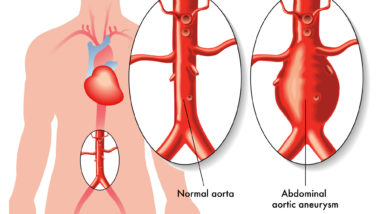Top Class Actions’s website and social media posts use affiliate links. If you make a purchase using such links, we may receive a commission, but it will not result in any additional charges to you. Please review our Affiliate Link Disclosure for more information.

Fluoroquinolones are a class of broad spectrum antibiotics commonly used to treat bacterial infections. Drugs in this class include Avelox (moxifloxacin), Cipro (ciprofloxacin), Levaquin (levofloxacin), Factive (gemifloxacin), Noroxin (Norfloxacin), and Floxin (ofloxacin). Over 20 million prescriptions are written for these drugs every year due to their effectiveness in killing infection-causing bacteria.
However, these medications may increase the risk for life threatening complications affecting the aorta. The aorta is one of the largest blood vessels in the body and carries blood out of the heart.
In December 2018, the U.S. Food and Drug Administration (FDA) released a safety announcement informing the public and healthcare professionals that fluoroquinolones such as Factive can increase the risk of aortic dissections and aneurysms.
“Fluoroquinolones should not be used in patients at increased risk unless there are no other treatment options available,” the FDA warned in their announcement. “People at increased risk include those with a history of blockages or aneurysms (abnormal bulges) of the aorta or other blood vessels, high blood pressure, certain genetic disorders that involve blood vessel changes, and the elderly.”
Other risk factors for aortic aneurysm may include lifestyle factors such as smoking and poor diet.
The aorta is composed of three layers which each play vital roles in the function of the blood vessel. When one of the walls is weakened, it can create a bulge in the blood vessel which is known as an aortic aneurysm.
Symptoms of an aortic aneurysm may include: a steady, deep, or throbbing pain in the stomach area; pain in the jaw, neck, back, or chest; coughing or hoarseness; shortness of breath; and trouble swallowing or breathing.
Aortic aneurysms usually do not pose any danger but require careful monitoring and can be life threatening if they progress to a full tear in the aorta, otherwise known as an aortic dissection.
When the inner wall of the aorta tears, it may result in a pooling of blood between two layers of the blood vessel. Over time, the force of blood flow can widen the tear in the aorta and weaken the outer later. Eventually, all of the layers of the aortic wall may tear – resulting in the pooling of blood in the body and other life threatening complications.
Due to the serious nature of these aortic events, the FDA announced that they were requiring additional warnings on fluoroquinolones to reflect the newly confirmed risks.
This is not the first time fluoroquinolones have been associated with adverse side effects. In 2008, the FDA warned that the antibiotics increased the risk of tendonitis and tendon rupture. Several years later in 2013, the agency warned the public again – this time about the increased risk of peripheral neuropathy (nerve damage).
In 2016, the FDA warned about significant blood sugar decreases and mental health side effects. The recent FDA announcement only adds to the laundry list of potential side effects associated with fluoroquinolone antibiotics.
Join a Fluoroquinolone Aortic Aneurysm, Aortic Dissection Lawsuit Investigation
If you or a loved one were prescribed Fluoroquinolones such as Cipro, Levaquin or Avelox and were later diagnosed with an aortic dissection or aortic aneurysm, you may have a legal claim. Fill out the form on this page now for a FREE case evaluation or call 1-(855)-JONES-LAW (1-855-566-3752).
ATTORNEY ADVERTISING
Top Class Actions is a Proud Member of the American Bar Association
LEGAL INFORMATION IS NOT LEGAL ADVICE
Top Class Actions Legal Statement
©2008 – 2024 Top Class Actions® LLC
Various Trademarks held by their respective owners
This website is not intended for viewing or usage by European Union citizens.
Get Help – It’s Free
Join a Fluoroquinolone Aortic Aneurysm, Aortic Dissection Lawsuit Investigation
If you qualify, an attorney will contact you to discuss the details of your potential case at no charge to you.
PLEASE NOTE: If you want to participate in this investigation, it is imperative that you reply to the law firm if they call or email you. Failing to do so may result in you not getting signed up as a client or getting you dropped as a client.
E-mail any problems with this form to:
Questions@TopClassActions.com.
Oops! We could not locate your form.












